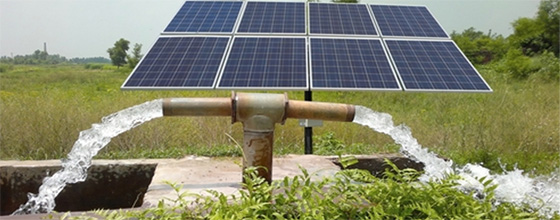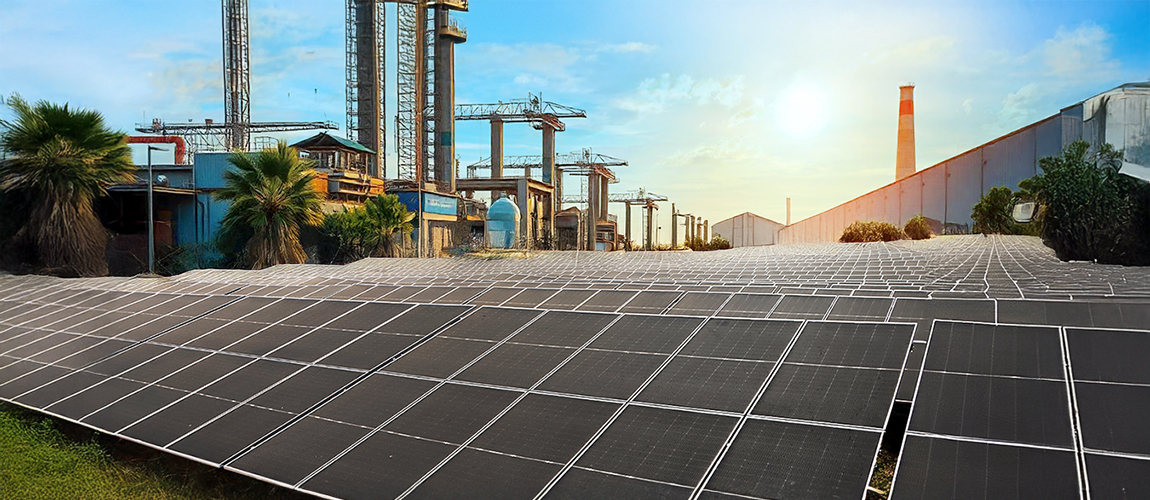In India’s rapidly industrializing economy, managing operational costs is a critical factor for businesses aiming to stay competitive. One of the most effective ways to reduce these costs is by investing in solar power plants. As energy prices continue to rise, and sustainability becomes a business imperative, solar energy offers a compelling solution for industrial clients. This blog explores how solar power plants can drive significant cost savings for industries in India, transforming energy consumption and enhancing profitability.
Reducing Electricity Costs
Electricity is a significant expense for industrial operations, particularly in energy-intensive sectors like manufacturing, textiles, and chemicals. By investing in on-site solar power plants, industries can generate their own electricity, reducing dependence on the grid and lowering electricity bills.
In states where net metering is available, excess electricity generated by a solar power plant can be fed back into the grid, earning credits that offset future energy consumption costs. This further enhances cost savings by reducing the net amount of electricity purchased from the utility.
Once the initial investment in a solar power plant is recovered, typically within 2-3 years, the cost of electricity from solar becomes negligible. This translates to decades of virtually free energy, as solar panels have a lifespan of 25-30 years.
Protection Against Rising Energy Costs
Energy costs in India have been on an upward trend due to factors such as fuel price fluctuations, increased demand, and policy changes. For industries, this volatility can make budgeting and cost control challenging.
Solar power provides a hedge against rising energy prices. By locking in a significant portion of their energy needs through solar, industrial clients can protect themselves from future price increases, leading to more predictable and stable energy costs.
In regions with unreliable grid supply, industries often rely on diesel generators, which are expensive to operate. Solar power plants can significantly reduce or even eliminate the need for diesel generators, leading to substantial cost savings on fuel.
Capitalizing on Government Incentives
The Indian government offers various incentives to promote the adoption of solar energy, which can significantly reduce the upfront cost of solar power plants for industrial clients.
- Subsidies and Tax Benefits : Central and state governments offer subsidies, accelerated depreciation benefits, and tax incentives for the installation of solar power plants. These incentives can reduce the overall cost of the solar project, improving the return on investment.
- Renewable Energy Certificates (RECs) : Industries that generate surplus solar energy can earn Renewable Energy Certificates, which can be sold in the market to other companies needing to meet their renewable energy obligations. This creates an additional revenue stream, further enhancing cost savings.
Enhancing Energy Efficiency
Integrating solar power with energy-efficient technologies can multiply cost savings for industrial clients.
- Smart Energy Management : Implementing smart energy management systems alongside solar power allows industries to monitor and optimize energy use in real-time. These systems can identify inefficiencies, shift energy-intensive processes to times when solar energy production is highest, and further reduce reliance on grid electricity.
Strengthening Corporate Sustainability Goals
Beyond direct financial benefits, investing in solar power plants aligns with broader corporate sustainability goals, which can drive indirect cost savings.
Companies that prioritize renewable energy demonstrate a commitment to sustainability, which can enhance their brand reputation and attract environmentally conscious consumers and investors.
Increased Energy Independence
Energy independence is a crucial advantage for industries, especially in regions where power supply is inconsistent.
By generating their own solar power, industries can ensure a more reliable energy supply, reducing the risk of production downtime caused by grid failures or load shedding. Uninterrupted operations mean avoiding the costs associated with production delays and missed deadlines.
Conclusion: Solar Power as a Strategic Investment
For industrial clients in India, solar power plants represent not just an environmentally friendly choice but also a strategic investment that can drive substantial cost savings. From reducing electricity bills and protecting against rising energy costs to capitalizing on government incentives and enhancing energy efficiency, the financial benefits of solar energy are clear. As India continues its transition to a sustainable energy future, industries that embrace solar power will be well-positioned to enhance profitability, achieve energy security, and lead in corporate sustainability.
About LUBI Electronics
LUBI Electronics is a leading company in India, exhibiting expertise in the automation, solar, and control panel industry.
Our solar offerings include best-in-class solar modules, solar pumps, solar pump controllers and solar inverters.
For more information on our offerings, please reach out to us at lubi@lubielectronics.com.












